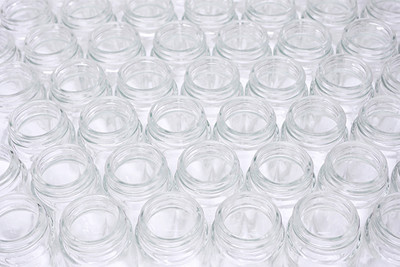Understanding EPR: What It Means for Packaging and for Our Customers
Posted by The Wares Team on 12th Nov 2025
If you buy packaging, bottles or jars for your business, you may have heard the term EPR mentioned more frequently this year. But what exactly is it — and what does it mean for you and us here at Wares?
What Is EPR?
The UK Government’s Extended Producer Responsibility (EPR) legislation is now in force. It’s a legal requirement applying to all businesses that import, purchase, or use packaging of any kind.
Think of it a little like VAT — but instead of being a tax, it’s a levy designed to fund the collection and recycling of packaging across the UK. These fees help local authorities modernise recycling infrastructure — but they also mean additional packaging costs for the supply chain.
In simple terms: if your company places packaging on the UK market that ends up in household recycling bins, you’re obliged to pay fees based on the type and weight of materials. This includes glass, plastic, metal, wood and other packaging.
If your business turnover is more than £2 million and you use more than 50 tonnes of packaging annually, you’re classed as a large producer and must handle your own reporting and payments.
If you’re smaller, or purchasing packaging from others, you don’t report yourself — but the cost is still built into the supply chain (so ultimately you pay).
- Read the UK Government’s full guidance on EPR for packaging
What EPR Means for Our Industry
EPR has brought significant change and complexity to the UK packaging sector. From manufacturers to wholesalers, retailers and glass suppliers alike — everyone in the chain is affected.
These fees have been in place through 2024 and 2025, and are here to stay into 2026 and beyond, as new “modulated” rates come into effect.
One thing’s clear: EPR is now a permanent part of packaging costs — and all suppliers, including us, must comply.
How We’ve Managed EPR at Wares of Knutsford
We value our customers and understand that businesses face plenty of pressures — so we’ve taken steps to make this transition as smooth as possible. Over the past year we’ve:
-
Worked with industry experts, suppliers and DEFRA to monitor developments.
-
Absorbed as much of the EPR cost as possible on your behalf, while the system matured.
-
Prepared updated documents: a Trade Application & EPR Declaration Form, and revised Wholesale Terms & Conditions to reflect EPR responsibilities.
From January 2026, we’ll begin applying packaging charges in line with the forthcoming modulated government rates. We’re hopeful these will reduce the current £192 per tonne charge on glass, helping to limit the impact on your wholesale and retail costs.
To maintain transparency, EPR charges will appear as a separate line on your invoice or quote.
EPR Pricing at Wares of Knutsford
Under our updated Wholesale Terms & Conditions:
-
Charges are calculated by material type and weight, using the latest government rates.
-
They will show clearly as a separate line item on your quotation or invoice.
-
They apply to all packaging materials (glass, metal, plastic, wood, etc.) unless one of the exemptions applies below.
-
We will communicate any future changes to the rate as soon as guidance is published.
What About Retail Customers?
If you’re a smaller business or individual buying in retail quantities — for example, a home jam-maker, chutney producer or candle maker — you don’t need to register or report anything yourself under EPR.
However, the costs still exist further up the supply chain, and like all UK retailers, we must include them in our product pricing.
This means that from 2026, you may notice a small increase in the price of jars, bottles, and packaging, reflecting the new government recycling fees.
We’ll continue doing everything we can to keep these increases modest and maintain fair pricing across all our ranges.
When EPR Charges Don’t Apply
We will not apply EPR charges in the following situations:
-
Your company has turnover above £2M and uses more than 50 tonnes of packaging per year (you are responsible for reporting/fees).
-
Your packaging will not enter household recycling — for example, lab packaging, wine decanting by restaurants, candle makers or sample storage.
-
Your packaged goods are exported outside the UK.
Wholesale customers can declare any of these exemptions when completing our Trade Application & EPR Declaration Form. Retail customers should call us when placing orders to ensure correct pricing.
Our Commitment to You
We remain committed to:
-
Keeping any EPR-related increases as fair and modest as possible.
-
Minimising any disruption to your business.
-
Being fully transparent and compliant as government guidance evolves.
We very much appreciate your ongoing support and trust in Wares of Knutsford Ltd.
If you’d like us to provide an EPR-inclusive quotation for future planning, please contact your account manager. Otherwise, you’ll be automatically re-quoted when placing orders in the New Year.
EPR may not be the most exciting topic — but it’s an important step towards sustainable packaging in the UK. And as always, our focus is on making that transition as smooth as possible for you.


